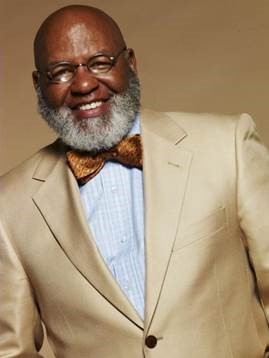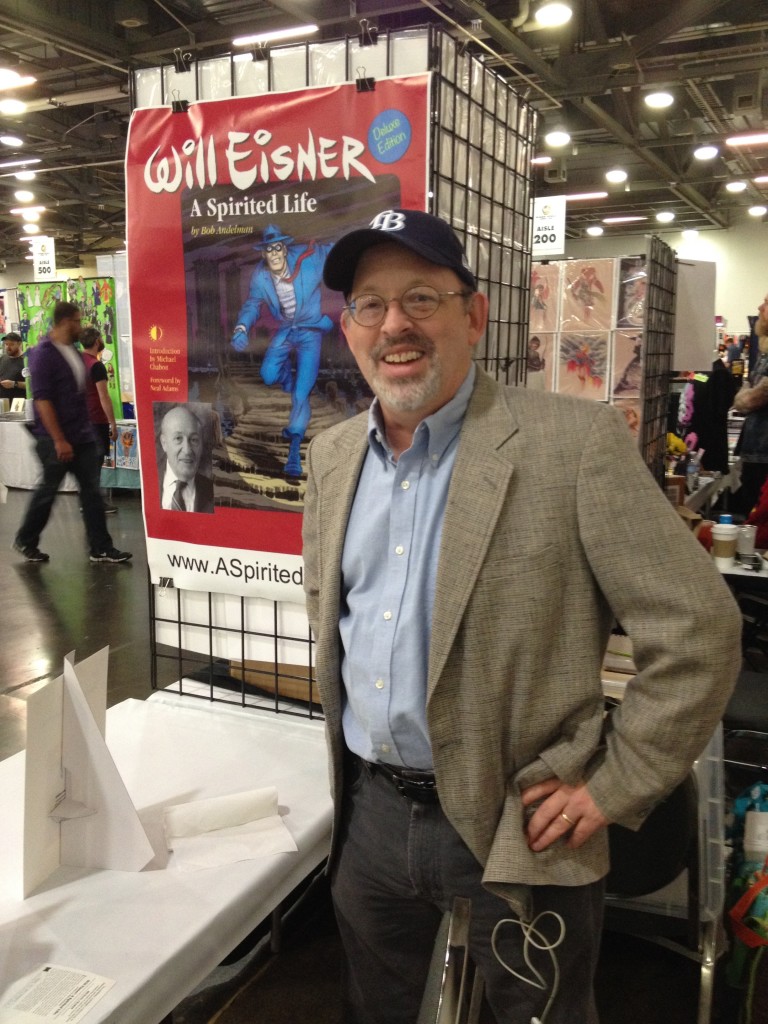By Bob Andelman
Originally published October 16, 1985
Fred Johnson wears Klompen – Dutch shoes.
“I know they’re weird,” he said, “but I don’t care.”
The St. Petersburg-based jazz singer also has a distinctive tattoo on his left forearm.
“This was supposed to be Dennis the Menace, but the blond hair didn’t show up too good,” he said, joking. “I got it when I was in the Marine Corps, part of my crazy days.”
All of which had nothing to do with why this 36-year-old man can sing and “scat” with incredible precisions and style. But physical appearance is part of the image, and Johnson is pretty straight-arrow aside from these quirks.
“I can’t remember a time when I didn’t sing, since I was 4 years old,” he said. “It was just a gift that the good Lord gave me. It’s helped me jump some barriers that might otherwise have been insurmountable. Music is my life.”
When it comes to jazz in the bay area, more people will probably recognize Johnson ahead of any “name” performers at the Clearwater Jazz Holiday.
FOR THREE years a fixture at B.B. Joe’s management, Jim Reichle and Greg McCarthy, for much of his good fortune.
“I started at B.B. Joe’s about a month after it opened. Not too many guys that do improvisational music like I do keep a gig three years. We’ve developed both a professional and a personal relationship.”
Johnson came to St. Petersburg from Boston in 1977. He first turned up in these parts at the Hurricane Lounge in Pass-a-Grille with Bobby Kostreva.
Perhaps the brightest star in a small constellation of regional jazz acts, Johnson, together with Kamau Kenyatta, has forged a strong reputation in an area noted for limited support of live music in any category.
“It’s certainly an evolving area. I’ve been here eight years. I’ve seen the growth, and I’ve seen the changes in attitude. I really think the Tampa Bay area is fusing its likes. A lot of professional folks are coming out, more people are traveling between Tampa and St. Petersburg. I think they’re learning to appreciate it.”
JAZZ IS not the easiest musical art form to market. Club owners get afraid they’re not going to make the dollar they would if they put in recorded music.
“A lot of good concerts are coming to the area with Ruth Eckerd Hall Modern Jazz Quartet, Wynton Marsalis – I think that’s done a lot to educate the community about how varied the music is.”
Johnson blends popular and standard music with improvisational leanings. “There are people that say I’m not the purist I used to be,” he said. “What’s important to me is to give good quality, a feel, your own signature.
“When I started here, the audience was more into standards. I’ve moved more into the pop vein the past few years.”
This year, people will find Johnson a little more electric than in the past. The band has added a second synthesizer player and is performing a lot more original material.
Kenyatta, a triple threat on soprano saxophone, tenor sax and synthesizer, is the leader of Johnson’s group and writes much of their original compositions.
“KAMAU IS a very creative writer,” Johnson said. “We’ve been together as musical partners since 1980.” The two met in Detroit. “I consider him to be my best friend and my musical planet.”
Two of Kenyatta’s songs – “The Sailing Song” and “For Lady Day” -. have become. Johnson standards. Another, “All My Own,” which Kenyatta wrote with Mike Scaglione, is very special to the singer.
“Kamau said when he wrote it he had me in mind. It’s about a singer who goes out into the world and tries to make it:
As long as I can glue
I’ll keep shining, growing, singing, growing. . .
Now I’ve found others of the same mind
Now the road is not too hard to bear
I thank God, who brought us together.
“I’m sure that’s an example of a lot of groups, but that’s what it’s all about. When you Ian hnd people you know are really–on you-r side and support you, that’s what it’s all about.”
Together, Johnson and Kenyatta composed “Journey,” “I’m Glad to Know” (a recently released single) and “Regina” (pronounced HEY-zheena).
“Kamau is sort of the solidifier,” Johnson said. “He has the ability to put together a collection of ideas into a finished product. He has said he’s not sure of the finished product until I sing it. I’m basically just an interpreter. They give it to me and I blow that final breath of life into it.”
FILLING OUT the quartet are bassist Mark Neuenschwander; Scaglione, who can play alto sax, flute and synthesizer; and drummer John Jenkins.
This is the group that will play the festival. Guitarist Todd Dykman will join them on stage, and he will be replacing Neuenschwander in the group. Following the festival, Ted Thomas, formerly a drummer with Earl Klugh, will take Jenkins’ place.
“It’s hard for me to do that,” Johnson said of the replacements. “And you don’t want to put anyone out of work. That was probably the most difficult thing I’ve had to do, tell someone that I have to make a change. (But) as you grow, your direction changes.”
“For the first time in my life,” he added, “I’m considering having a manager and agent. I love this area, and I always want to work here, but my scope is broadening and I think it’s time to gain some national recognition.”
Fred Johnson Facebook



